Food idioms offer a unique glimpse into the cultures and everyday lives of people around the world. These expressions use food references to convey meanings beyond their literal sense, enriching our language with vivid imagery and cultural insights.
Idioms are phrases whose meanings cannot be understood from the individual words. They capture complex ideas and emotions, making conversations more engaging. Food idioms are particularly interesting because they reflect universal experiences and cultural nuances. They bring humor, wisdom, and relatability to our speech.
In this blog post, we'll explore delicious food idioms in different languages, revealing the rich contexts and meanings behind them!
Table of Contents
Food Idioms From Around the World
France
1. Faire la fine bouche. - To make a fine mouth.
Meaning: To be picky or fussy about food. This idiom describes someone who is very selective or difficult to please, especially regarding food.
Example: Marie fait toujours la fine bouche au restaurant, renvoyant les plats qui ne sont pas exactement à son goût. (Marie always makes a fine mouth at restaurants, sending back dishes that aren't exactly to her liking.)
2 . Raconter des salades. - To tell salads.
Meaning: To tell lies or stories. This phrase means to tell exaggerated or untrue stories.
Example: Ne crois pas tout ce que dit Paul; il raconte toujours des salades sur ses aventures. (Don't believe everything Paul says; he's always telling salads about his adventures.)
Italy
3. Essere come il prezzemolo. - To be like parsley.
Meaning: To be everywhere. Parsley is a common herb used in many dishes, symbolizing someone or something that is omnipresent.
Example: Luca è sempre come il prezzemolo, spuntando a ogni evento sociale. (Luca is always like parsley, popping up at every social event.)
4. Avere le mani in pasta. - To have hands in the dough.
Meaning: To be involved in something. This idiom means being actively involved or engaged in a project or activity.
Example: Giulia ha le mani in pasta con diversi progetti di beneficenza quest'anno. (Giulia has her hands in the dough with multiple charity projects this year.)
Germany
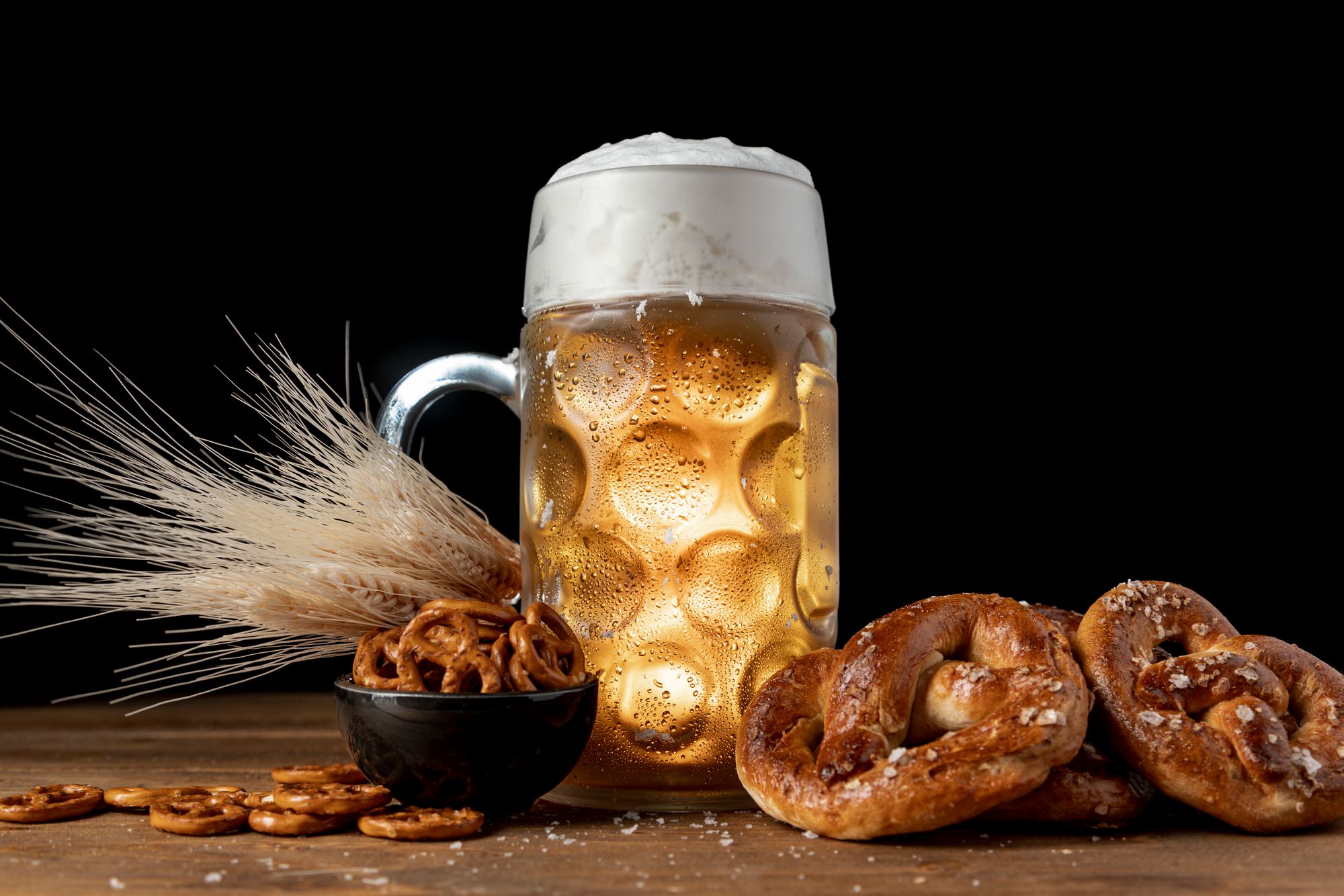
5. Das ist nicht mein Bier. - That is not my beer.
Meaning: That’s not my problem. This phrase indicates that something is not your concern or responsibility.
Example: Als sie über das Budget gestritten haben, habe ich mich rausgehalten, denn das ist nicht mein Bier. (When they argued about the budget, I stayed out of it because that is not my beer.)
6. Die Katze im Sack kaufen. - To buy a cat in a sack.
Meaning: To buy something without seeing it first. This idiom warns against purchasing something without verifying its quality or condition.
Example: Er hat das gebrauchte Auto ohne Probefahrt gekauft, im Grunde genommen eine Katze im Sack. (He bought that used car without a test drive, essentially buying a cat in a sack.)
China
7. 吃醋" (chī cù) - To eat vinegar.
Meaning: To be jealous. This idiom describes feeling envious or jealous.
Example: 她看到他和别的女孩聊天就开始吃醋。(She started to eat vinegar when she saw him chatting with another girl.)
8. 狼吞虎咽 (láng tūn hǔ yàn) - Wolf down, tiger swallow.
Meaning: To eat voraciously. This phrase describes eating quickly and greedily.
Example: 他饿坏了,狼吞虎咽地吃完了整顿饭。(He was starving and wolfed down the entire meal.)
Japan
9. 鯖を読む (saba o yomu) - To read the mackerel.
Meaning: To fudge the numbers. This idiom means to manipulate numbers or data.
Example: 彼は売上を誤魔化して、鯖を読んでいる。(He's fudging the sales numbers, reading the mackerel.)
10. 口に合う (kuchi ni au) - To suit one’s mouth.
Meaning: To be to one’s taste. This phrase indicates that something is to one's liking, especially food.
Example: この料理は私の口に合う。(This dish suits my mouth.)
India
11. अंगूर खट्टे हैं (Angoor khatte hain) - The grapes are sour.
Meaning: To disparage something unattainable. This idiom is used when someone belittles what they cannot have.
Example: वह कार नहीं खरीद सकता इसलिए कहता है अंगूर खट्टे हैं। (He can't buy the car, so he says the grapes are sour.)
12. आटे दाल का भाव मालूम होना (Aate daal ka bhaav maaloom hona) - To know the price of flour and lentils.
Meaning: To understand the realities of life. This phrase means understanding the practical aspects of life.
Example: अब उसे आटे दाल का भाव मालूम हो गया है। (Now he knows the price of flour and lentils.)
Turkey
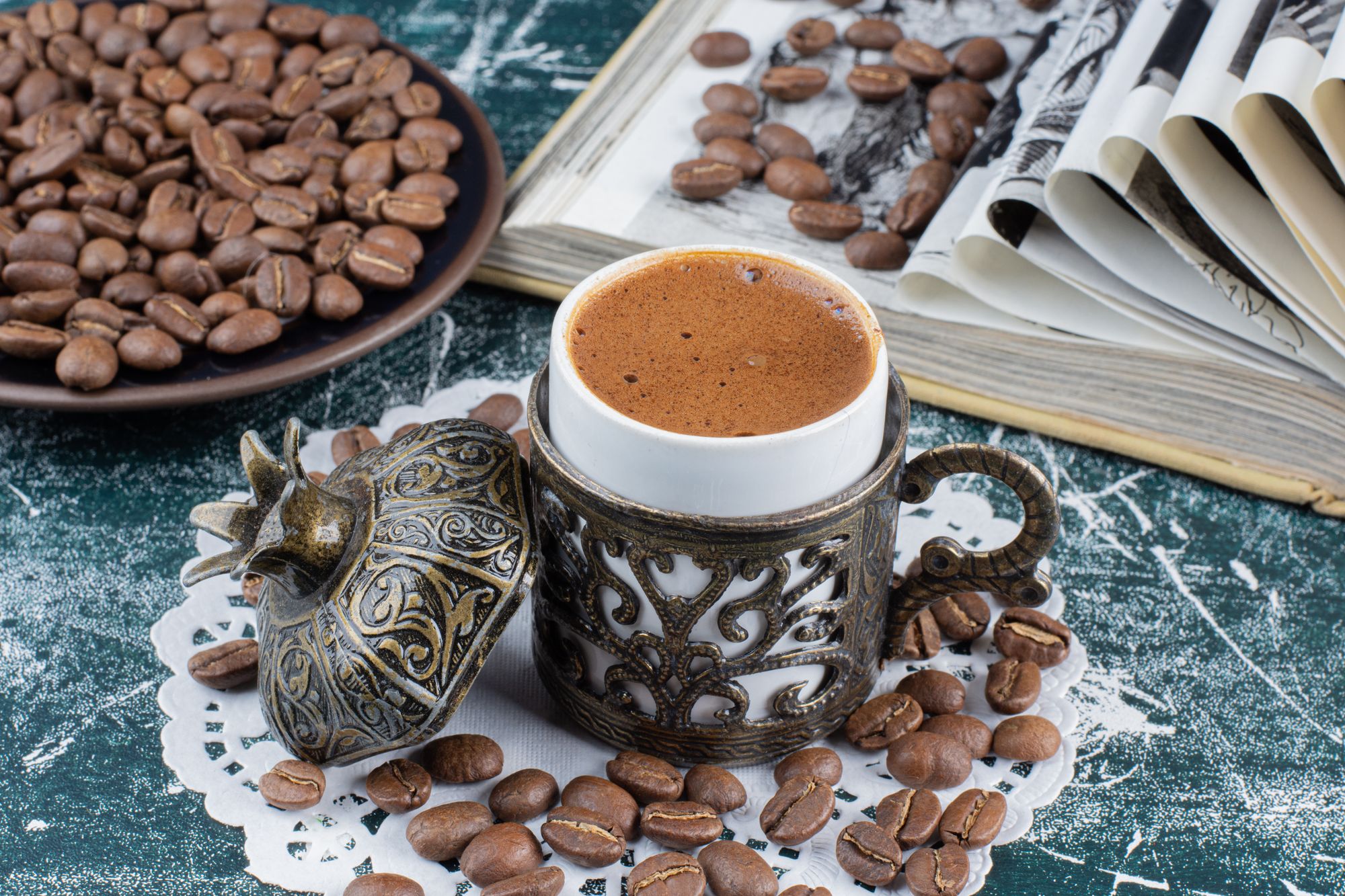
13. Bir kahvenin kırk yıl hatırı vardır. - A cup of coffee is remembered for forty years.
Meaning: The value of small gestures. This idiom emphasizes the long-lasting impact of small kindnesses.
Example: Ona bir fincan kahve ikram ettim ve şimdi kırk yıl hatırımız var. (I offered him a cup of coffee, and now we have forty years of friendship.
14. Üzüm üzüme baka baka kararır. - Grapes darken by looking at each other.
Meaning: People become like those they associate with. This phrase means that people influence each other through their interactions.
Example: Çocuklar arkadaşlarına baka baka üzüm üzüme kararır misali değişiyorlar. (Children change like grapes darken by looking at each other, influenced by their friends.)
United States
15. The apple of one’s eye. – Someone cherished above others.
Meaning: Someone cherished above others. This idiom refers to a person who is dearly loved and cherished.
Example: Her grandson is the apple of her eye. (Her grandson is the apple of her eye.)
16. Spill the bean. – To reveal a secret.
Meaning: To reveal a secret. This phrase means to disclose confidential information.
Example: She accidentally spilled the beans about the surprise party. (She accidentally spilled the beans about the surprise party.)
Mexico
17. Estar en la luna de Valencia. - To be on the moon of Valencia.
Meaning: To be daydreaming or distracted. This idiom describes someone who is not paying attention.
Example: Estaba en la luna de Valencia durante toda la reunión. (He was on the moon of Valencia throughout the entire meeting.)
18. Poner toda la carne en el asador. - To put all the meat on the grill.
Meaning: To give it your all. This phrase means to put in maximum effort.
Example: En este proyecto, vamos a poner toda la carne en el asador. (In this project, we are going to put all the meat on the grill.)
Read also:
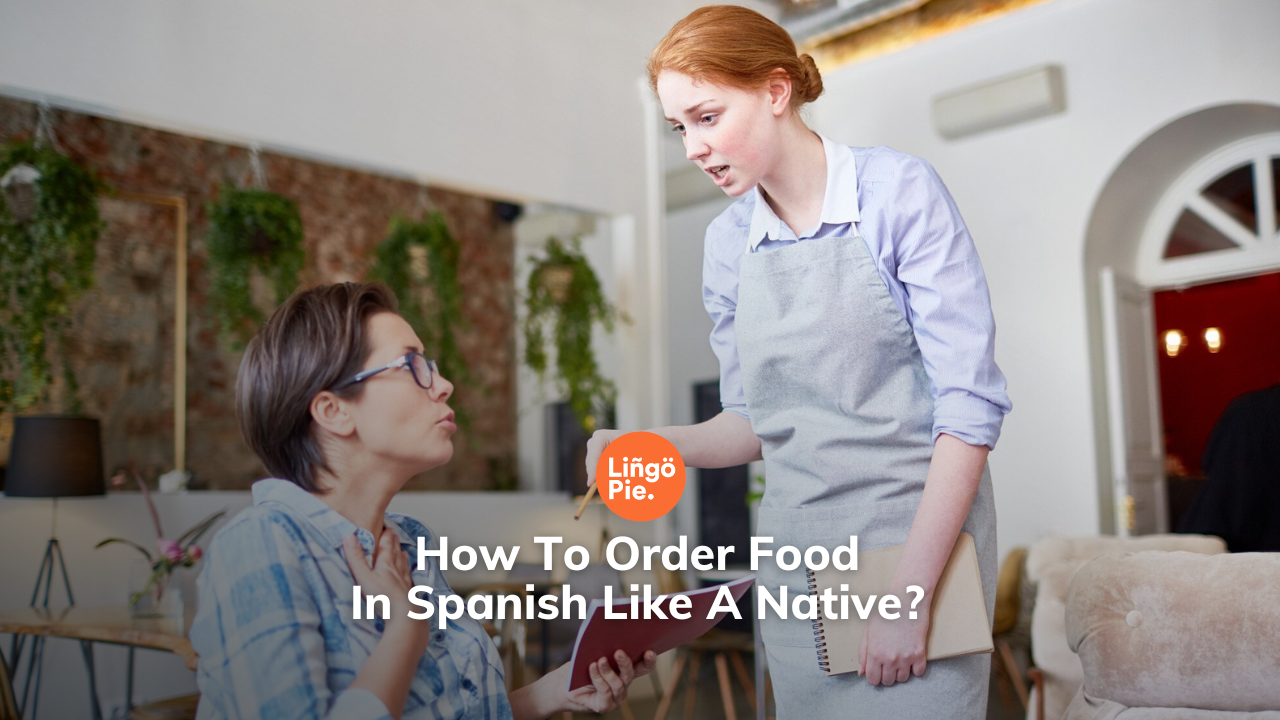
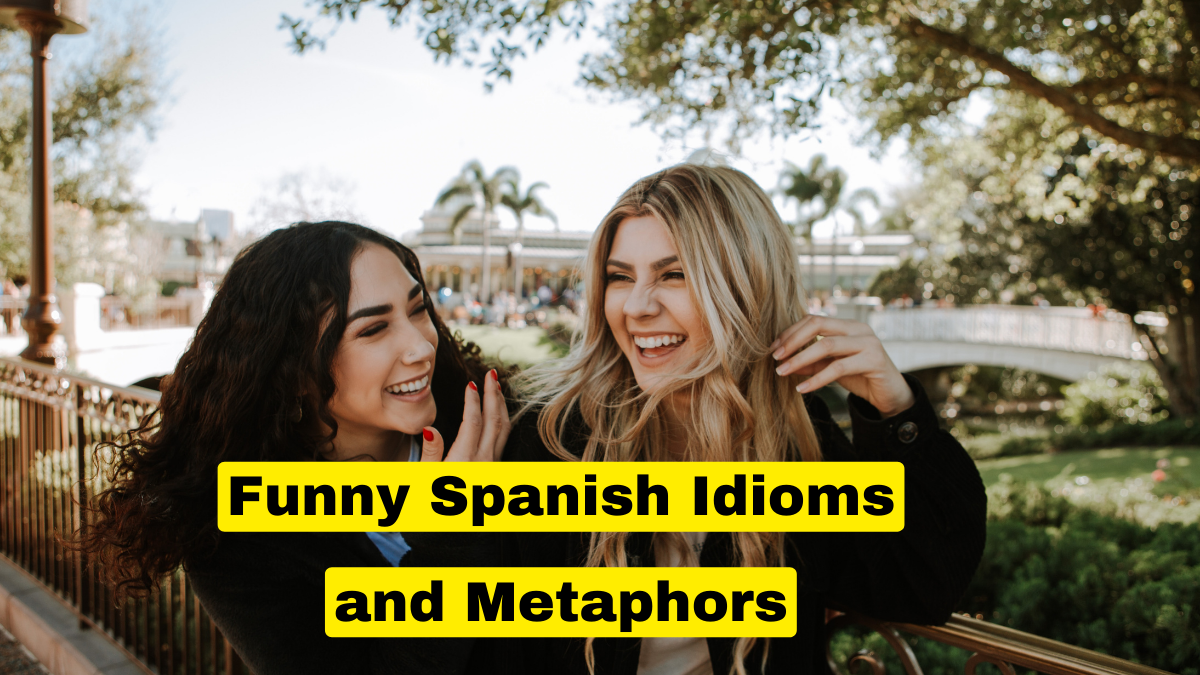
Brazil
19. Chorar pelo leite derramado. - To cry over spilled milk.
Meaning: To lament something that can’t be undone. This idiom means to be upset over something that has already happened and cannot be changed.
Example: No adianta chorar pelo leite derramado. (There's no use crying over spilled milk.)
20. Queimar a língua. - To burn one’s tongue.
Meaning: To regret something said. This phrase describes feeling regret for saying something inappropriate or harmful.
Example: Ele queimou a língua ao fazer aquele comentário. (He burned his tongue by making that comment.)
Argentina
21. Dar calabazas. - To give pumpkins.
Meaning: To reject someone. This idiom means to turn someone down, especially in a romantic context.
Example: Ella le dio calabazas después de la primera cita. (She gave him pumpkins after the first date.)
22. Ponerse como un tomate. - To turn into a tomato.
Meaining: To blush deeply. This phrase describes someone blushing intensely from embarrassment or shyness.
Example: Cuando le hicieron el cumplido, se puso como un tomate. (When they complimented him, he turned into a tomato.)
Australia
23. Flat out like a lizard drinking. – Extremely busy.
Meaning: Extremely busy. This idiom means being very busy or working hard.
Example: I've been flat out like a lizard drinking all week, trying to meet the deadline.
24. Bring a plate. – Bring a dish to a gathering.
Meaning: Bring a dish to a gathering. This phrase is used to ask guests to bring a dish of food to share at a gathering.
Example: The invitation said to bring a plate, so I made a salad.
Final Words
So, we've explored a variety of fun food idioms from around the world, each reflecting unique cultural perspectives on food and life. These sayings enrich our conversations and highlight how food shapes our daily experiences.
Food idioms show cultural values and humor, from French pickiness to Chinese jealousy (eating vinegar) and Australians being flat-out like a lizard drinking. Our love for food makes our language colorful and connects us across cultures. Let's celebrate this shared love and the vibrant expressions it creates.
Learn Different Languages by Immersing Yourself with Lingopie!
Lingopie immerses you in authentic TV shows and movies in your target language. That's why our users love learning a foreign language with Lingopie because it doesn't feel like studying!
With Lingopie, you can watch a wide variety of foreign-language content with subtitles in both the target language and your native language. This allows you to follow along with the dialogue, pick up new vocabulary, and improve your listening skills while enjoying entertaining and culturally rich content.
Download Lingopie from the App Store or Play Store now and get a FREE 7-day trial!
Frequently Asked Questions
1. What are some idioms for food?
- Piece of cake – Something very easy to do.
This idiom suggests that a task is as easy as eating a delicious piece of cake. - Spill the beans – To reveal a secret.
This phrase means to disclose information that was supposed to be kept confidential. - Apple of one's eye – Someone cherished above others.
Refers to someone who is very precious or dear to you, much like an apple is a valued fruit. - Cool as a cucumber – Very calm and composed.
Describes someone who remains calm and untroubled, even in stressful situations. - Egg on your face – To be embarrassed or look foolish.
Used when someone has made a mistake that makes them look silly.
2. What is the idiom for eating a lot of food?
"Eat like a horse" is the idiom for eating a lot of food. Horses are known for their large appetites, so this idiom describes someone who eats a lot.
3. What is the food idiom for trouble?
"In a pickle" is used when you are in a difficult situation or trouble. Being in a pickle means you are in a tricky or problematic situation, much like being stuck in a jar.
4. What is the food idiom for bananas?
"Go bananas" is the idiom for bananas. It means to go crazy or become very excited. This idiom means to become very enthusiastic or irrational, similar to the energetic and erratic behavior often associated with monkeys eating bananas.
5. What is the idiom for one who eats too much?
"Eat like a pig" is the idiom to describe someone who eats too much. It means to eat a lot or eat greedily. Pigs are known for eating large amounts of food quickly and messily, so this idiom describes someone with similar eating habits.


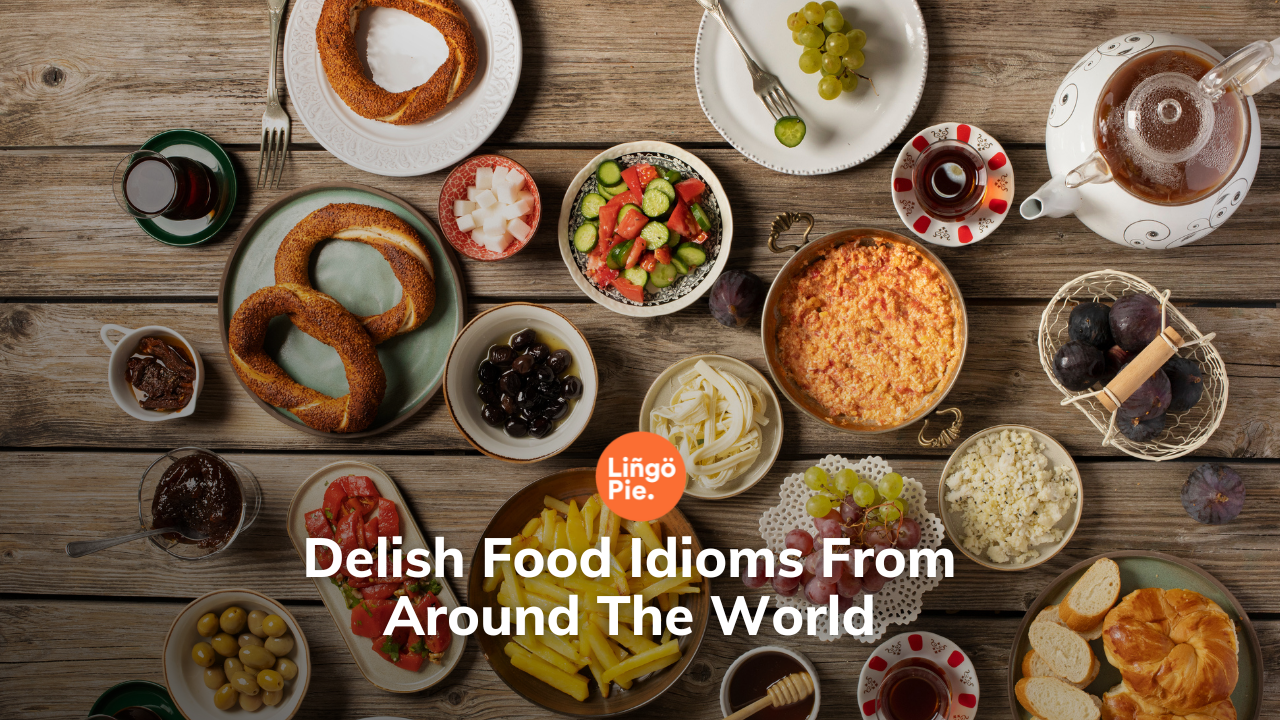


![How To Learn Japanese With Ghibli Studios [3+ Best Films]](/blog/content/images/2023/03/Top-shows-to-learn-Spanish-on-Netflix--18-.png)




![30+ Modern English Slang Terms For Money [Guide]](/blog/content/images/size/w300/2025/06/Slang-term-for-money.jpg)